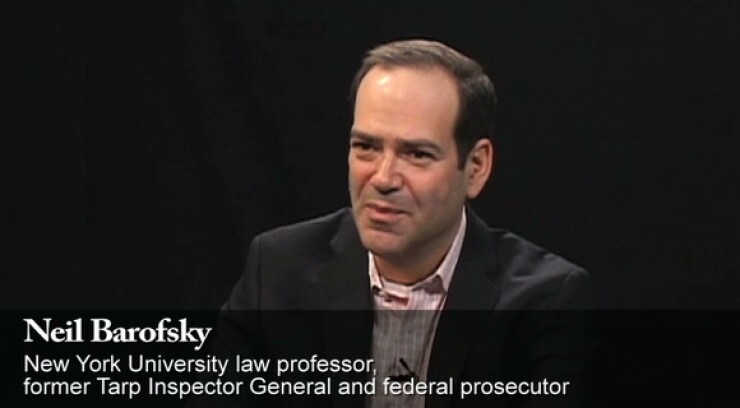
(Bloomberg) --Credit Suisse reinstated Neil Barofsky as an independent ombudsperson to oversee the Swiss bank's review into its history of servicing Nazi-linked accounts.
The decision was announced Monday by the U.S. Senate Budget Committee, which has been probing Credit Suisse's handling of the internal investigation.
"A clear-eyed and historically complete evaluation of Credit Suisse's servicing of Nazi-linked accounts demands painful facts to be met head on, not swept aside," Senator Chuck Grassley of Iowa and Senator Sheldon Whitehouse of Rhode Island said in a statement. "At our insistence, Credit Suisse has agreed to dig deeper into its own history, and Mr. Barofsky will again oversee this review."
Barofsky, a former inspector general of the Troubled Asset Relief Program and frequent Wall Street critic, was removed as ombudsman by Credit Suisse in November 2022. While he was initially given the task of producing a public report on his findings, the Budget Committee obtained the document only after issuing a subpoena, it said earlier this year. The report alleged the bank had narrowed the scope of the inquiry and failed to follow through on some leads.
In April, the Swiss bank said its probe didn't support key claims about Nazi-linked accounts made by the Simon Wiesenthal Center in 2020 and that the report prepared by Barofsky contained "numerous factual errors" and other flaws.
After the Senate panel in July criticized Credit Suisse for failing to follow through on pledges to cooperate, the bank provided an unredacted version of the Barofsky report to the legislators. That showed the bank had failed to review all available records, according to the senators.
Credit Suisse was bought by rival UBS Group AG earlier this year. A spokeswoman for UBS didn't have an immediate comment.
The spat over the internal Credit Suisse probe comes about a quarter century after the two big Swiss banks reached a $1.25 billion settlement with victims of the Holocaust. That accord resolved claims that the banks failed to return assets to survivors of Adolf Hitler's genocide and heirs of victims. It also covered claims by people whose assets were looted by the Nazis and deposited in Swiss banks.





